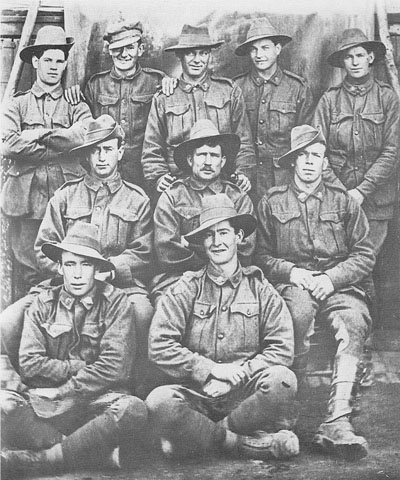
Appel à contributions
War in a Gender Context. Topics and Perspectives within Women’s and Gender History of the First World War
Avant le 31 décembre - Vienne (Autriche)
29.09.2011-01.10.2011, University of Vienna (Austria)
Abstract :
Research on the First World War has been experiencing a surge in
popularity for some time, albeit not in all national historiographies
and scientific cultures equally. New approaches to World War research in
particular are very disparately represented, which complicates
transnational perspectives. This is especially true for studies in the
area of women’s and gender history, although it has become clear that
the war societies as well as the complex consequences of the First World
War cannot be sufficiently documented and understood without considering
the analytical category of gender. In all participating states this
virtually total war not only led to the extensive support of the war by
women on the "home front" — strongly conceived as a women’s sphere —
but also in the combat zones. In addition, soldier masculinity was
idealised in a far more powerful way than ever before — with
implications for the hegemonic gender and societal orders, which also
impeded pacifist efforts and activities. The extensive stylisation of
nations as collective bodies in combat and the associated warmongering
and ideological blindness are a European phenomenon, as is the
experience of bellicose violence right through to active killing, flight
and expulsion — with many manifestations, including
gender-differentiated forms.
How can the existing contributions to women’s and gender history of the
First World War be focussed ? Which conclusions can we draw when
reviewing all relevant research and where do the existing focuses and
shortcomings of the research field lie — for example, in comparison to
various national studies or in connection with the latest research on
masculinity ? How essential is it to link gender-specific studies to
perspectives of the First World War from the areas of political, social,
economic and cultural history, the history of mentalities and/or social
history ? Which differences exist if the viewpoint is extended and
national historiographies are placed in a comprehensive, comparative
context ? Can the evaluations made so far still be upheld and historians’
debates — such as those on the war-related virulence of gender
relations or an allegedly emancipative effect of the war — be generalised ?
The international conference "War in a Gender Context — Topics and
Perspectives within Women’s and Gender History of the First World War",
taking place from 29th September until 1st October 2011, intends to
reflect on these kinds of questions on the basis of four selected topics
that appear to be central : front line/home front, violence, citizenship,
and peace efforts. It takes the upcoming centenary of 2014 as an
occasion for detailed discussion, to review previous results and to
conceptualise future research perspectives — including contributions to
historical peace research, which has been particularly involved in
aspects of social militarisation and the criticism of militarism.
Historians conducting relevant research are invited to submit their
suggestion for a contribution to this conference in the form of an
abstract on one of the four following closely connected topic areas by
31st December 2010 at the latest.
(...)
The conference, organised by Birgitta Bader-Zaar (University of Vienna),
Christa Hämmerle (University of Vienna) and Oswald Überegger (University
of Hildesheim), is held within the framework of the research platform
Repositioning of Women’s and Gender History of the University of Vienna
in cooperation with the Arbeitskreis Historische Friedensforschung
(AKHF). We are particularly interested in inviting scholars who are
involved in the research of formerly neglected war zones as well as
warring states and societies, for example in Eastern and Southeastern
Europe. The contributions will be published in a conference volume.
Those interested in participating are kindly asked to send an abstract
of a presentation proposal written in English or German, approx. one
page in length (approx. 2500 characters) and a CV to
neuverortung.geschlechtergeschichte@univie.ac.at (Michaela Hafner) by
31st December 2010.
Fichiers de syndication :
Statistiques :
Le site contient 4383 articles
